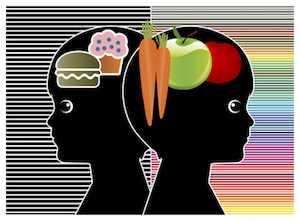 When you love your children and grandchildren, it is natural to want to give them things they like, and to spoil them a little sometimes. One of the easiest ways to do that is with food – a biscuit here, a fast food treat there. Children generally respond well to these ‘treats’, but a new Kiwi study shows that more and more of our kids are at risk of serious illness by being overweight.
When you love your children and grandchildren, it is natural to want to give them things they like, and to spoil them a little sometimes. One of the easiest ways to do that is with food – a biscuit here, a fast food treat there. Children generally respond well to these ‘treats’, but a new Kiwi study shows that more and more of our kids are at risk of serious illness by being overweight.
It is the first study to highlight the long term risks for obese children; despite their young age, they are showing signs of developing serious weight-related problems, such as Type 2 diabetes, heart, and liver disease. When the children entered the study, they had medical tests and physical assessments for signs they could be on their way to developing weight-related problems.
Researchers found:
- 75 percent had signs of inflammation, increasing long-term heart disease risk
- 40 percent had physical signs of high risk for Type 2 diabetes
- 47 percent had at least one abnormal liver function test
- 11 percent had abnormal blood pressure
- 50 percent snored four or more nights a week, and breathing pauses during sleep had been witnessed in 20 per cent – both suggestive of obstructive sleep apnoea.
Dr Yvonne Anderson, a paediatrician and co-author of the study says that similar studies overseas prepared them for what they may find but,“what was concerning was how common they were from a young age.” Children as young as five had risk factors for Type 2 Diabetes and signs suggestive of obstructive sleep apnoea.
“These children are not just carrying a bit of extra weight – they also have health indicators that can be life-limiting if left unaddressed,” says Dr Anderson.
Nationally, some 85,000 children aged 2-14 years are considered obese. “Obesity is everyone’s problem and we all need to be part of the solution,” says Dr Anderson.
To be part of the solution, walk the walk in front of your children;
- cook and eat meals together at home
- promote fruit and vegetables as interesting, healthy and great tasting
- tach them to read food labels
- take regular exercise together
- stock your fridge and pantry with healthy options
- resist the temptation to reward with high sugar, salt, or fat foods
- drink water
- eat at the table, not in front of the tv
- limit time indoors on screens and devices
- practice portion control
- eat more slowly








Join the Discussion
Type out your comment here:
You must be logged in to post a comment.